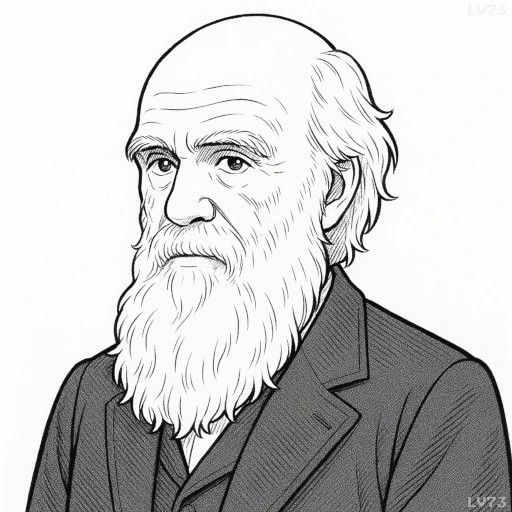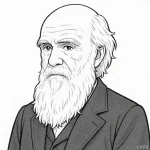“I cannot persuade myself that a beneficent and omnipotent God would have designedly created parasitic wasps with the express intention of their feeding within the living bodies of Caterpillars.”

- February 12, 1809 – April 19, 1882
- Born in England (UK)
- Naturalist, geologist, biologist
table of contents
Quote
“I cannot persuade myself that a beneficent and omnipotent God would have designedly created parasitic wasps with the express intention of their feeding within the living bodies of Caterpillars.”
Explanation
In this quote, Charles Darwin grapples with the apparent cruelty in nature, particularly in the relationship between parasitic wasps and their caterpillar hosts. The wasps lay their eggs inside living caterpillars, and their larvae feed on the caterpillar’s body, often causing it to suffer before it dies. Darwin is expressing his difficulty in reconciling this natural phenomenon with the belief in a benevolent and omnipotent God, as he struggles to understand why a higher power would design such a painful and harmful process. This reflects Darwin’s broader questioning of the nature of life and the role of divine intervention in the design of the natural world, themes that were central to his personal reflections on evolution and the existence of a creator.
Historically, Darwin’s theory of evolution by natural selection led him to reevaluate the concept of a creator. While he initially struggled with religious beliefs, especially in light of the suffering and violence in nature, Darwin eventually moved away from the traditional view of a God who directly intervenes in the natural world. The parasitic wasp example highlights the difficulties Darwin had in reconciling his observations of nature with the religious views of his time. His growing belief in natural selection as a purely mechanistic process—shaped by environmental pressures rather than divine will—was part of his larger shift away from creationism towards a more scientific understanding of life’s complexity.
In modern times, Darwin’s words resonate with ongoing debates about the problem of evil or theodicy, particularly in the context of natural processes that appear cruel or senseless. Issues like parasitism, predation, and suffering in nature continue to challenge theological views of a benevolent deity, particularly in the age of scientific exploration. For example, in modern biology, parasitism is seen as a natural evolutionary strategy, with species evolving to exploit others for survival. From an evolutionary perspective, this isn’t evidence of divine malice but rather the result of natural forces shaping organisms to survive within their ecological niches. Darwin’s contemplation of these moral dilemmas remains a profound moment in his intellectual journey, highlighting the tension between religious belief and emerging scientific explanations for the natural world.
Would you like to share your impressions or related stories about this quote in the comments section?
